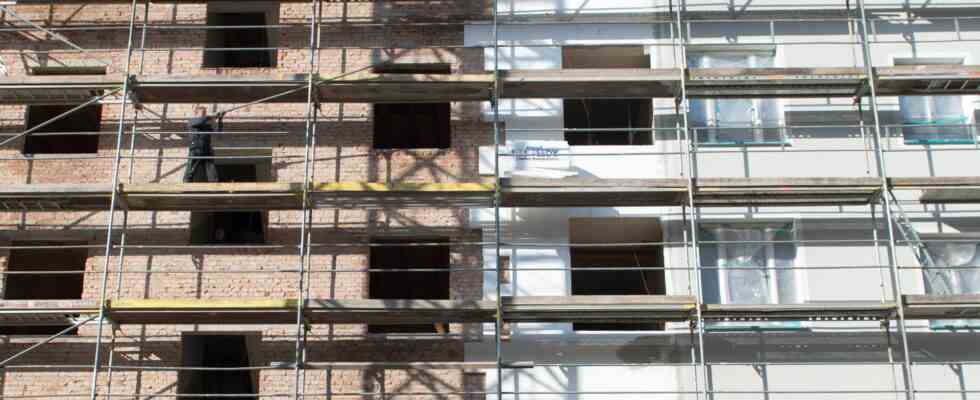Status: 09.01.2023 10:08 a.m
Is the German economy facing a recession? According to a recent survey, 40 percent of companies expect less production this year. The construction industry in particular is expecting a difficult year.
The German economy is likely to have to contend with a difficult economic situation in the current year. However, it is unclear how critical the situation will actually become. According to a report by the news agency, a survey of 2,500 companies by the employer-related Institute of the German Economy (IW) Reuters showed that four out of ten companies in Germany are expecting a recession this year. Only a good quarter of the companies expect higher business activity, around 35 percent expect stagnation.
The business expectations of companies have therefore clouded over significantly in the course of 2022. “A serious recession is predicted in the construction industry, and pessimists also dominate in industry,” he said Reuters from the survey. The deterioration in production expectations for 2023 can be observed almost equally in all economic areas.
Dark situation in the construction industry
At the end of 2022, only 32 percent of the companies surveyed by the IW rated their current business situation as better than a year ago. The proportion of companies in a worse situation rose significantly to one third. “The burden of high energy costs and ongoing material problems have already left their mark on economic life,” says the survey. The initial confidence was “crushed”.
It looks bleak, especially in construction. There, only 15 percent of the companies surveyed expect an increase in production for 2023. On the other hand, almost 54 percent expect a decline and almost a third expect economic output to remain the same. The industry is suffering from increased prices and higher interest rates.
Industrial production recovers slightly
In industry, too, the proportion of pessimistic companies at 39 percent is significantly higher than that of optimists (almost 28 percent), according to the economists at the IW. “This overall negative finding is mainly due to the considerably cautious assessment in the consumer and raw materials industry.”
According to current data, however, the industry was able to recover a little last November. Total production rose by 0.2 percent on the previous month, the Federal Statistical Office announced today. The background is a thick order backlog and dwindling material bottlenecks. The gain follows a 0.4 percent decline in October. Bank economists had currently expected a somewhat more significant increase of 0.3 percent. Compared to the same month of the previous year, production was again down. There had recently been a setback in incoming orders.
recession or not?
It is surprising that these numbers are so inconspicuous, says LBBW economist Jens-Oliver Niklasch. “A few months ago there were fears that the industrial economy could collapse in the face of an impending gas shortage. That didn’t happen. This shows the remarkable flexibility of the industry, which has made a significant contribution to reducing gas consumption.” Niklasch thinks it’s possible that Germany will get through this winter without a recession.
“There is now a consensus that there will be no deep recession like after the financial crisis or Corona in the euro area and in Germany,” says Jörg Krämer, chief economist at Commerzbank. After all, a gas shortage had become unlikely. Not least because of the comparatively mild winter, energy prices have eased despite the ongoing war in Ukraine.
Price-adjusted minus in retail
According to an IW survey, positive (29 percent) and negative (32 percent) expectations are currently almost balanced among companies in the service sector. Almost 40 percent expect stable business. “A negative mood in retail contrasts with good prospects in the ICT (information and communication technology) and media sectors.”
A few days ago, the retail trade published sales data. Rising prices lifted retail sales in Germany to record levels last year. Nominally, the revenues were 8.2 percent above the previous record year 2021, as the Federal Statistical Office extrapolated on the basis of the data up to and including November. If one calculates out the price increases, this estimate results in a minus of 0.3 percent compared to the previous year.
This explains the low level of confidence in the industry. “Our current trend survey in retail shows that the majority of retailers do not expect sales to recover in 2023,” said Stefan Genth, Managing Director of the German Retail Association (HDE).
recession fails? Reality check follows
Bianca von der Au, HR, 01/09/2023 10:29 a.m

